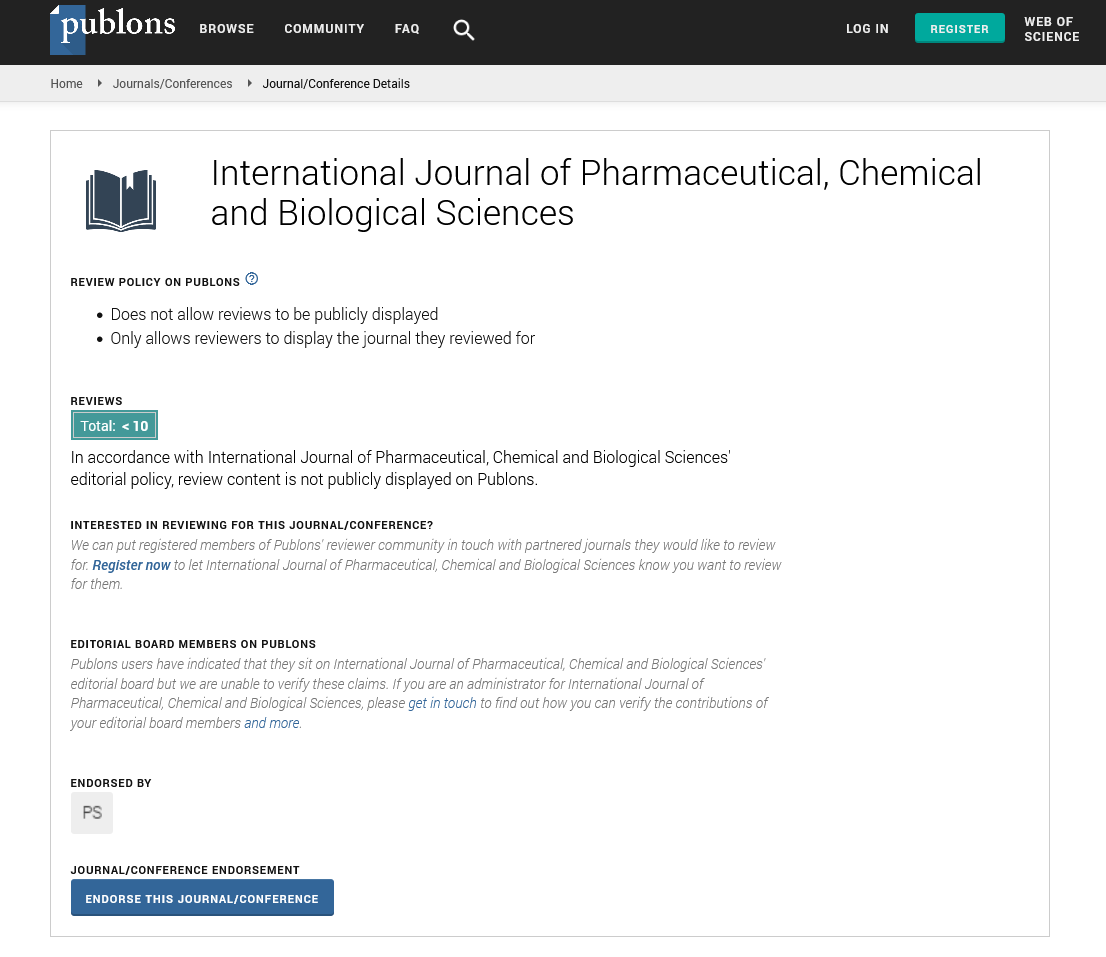Abstract
Author(s): Swetha Amaralpudi1*, Venkateswarlu Guddeti 2, T. Kala Praveen3 M. Hima Bindu4, and G. Raveendra Babu5
This study demonstrates the antiepileptic activity of hydroalcoholic extract of AlliumCepha bulbs. (Family: Liliaceae) in mice. Epilepsy is acollective term describing of chronic seizure disorder having in common, sudden and transient episodes(seizure) of lossor distrubance of consiousness, usually but not always with a characteristic body movement(convulsions). For assessing of antiepileptic activity Pentylenetetrazole(PTZ), Maximal electro shock(MES) models were used. Diazepam was used as a standard reference for all models. Shade dried bulbs of AlliumCepha were powedered and subjected to soxhelet apparatususing alcohol and water. Hydroalcoholic extract was administerd to the animals as suspension using 2% of gum acacia for experimental purpose. Preliminary phytochemical investigation of the hydroalcoholic extract of AlliumCepha bulbs reveals the presence of carbohydrates, proteins, alkaloids, flavonoids, phytosterols, fats and oils and voltile oils.Hydroalcoholic extract of AlliumCepha bulbs either upto the dose level of 2000mg/kg did not produce any sort of mortality. In pentylenetetrazole(PTZ), Maximal electro shock(MES), high dose, medium dose and low dose of AlliumCepha extract showed significant antiepileptic activity by delaying the onset of convulsionsand by prolong the onset of clonus and tonic extensor convulsion.In percentage protection, increased protection of animals in groups treated with diazepam, high dose, medium dose and low dose of AlliumCepha extract in comparision with control models.

